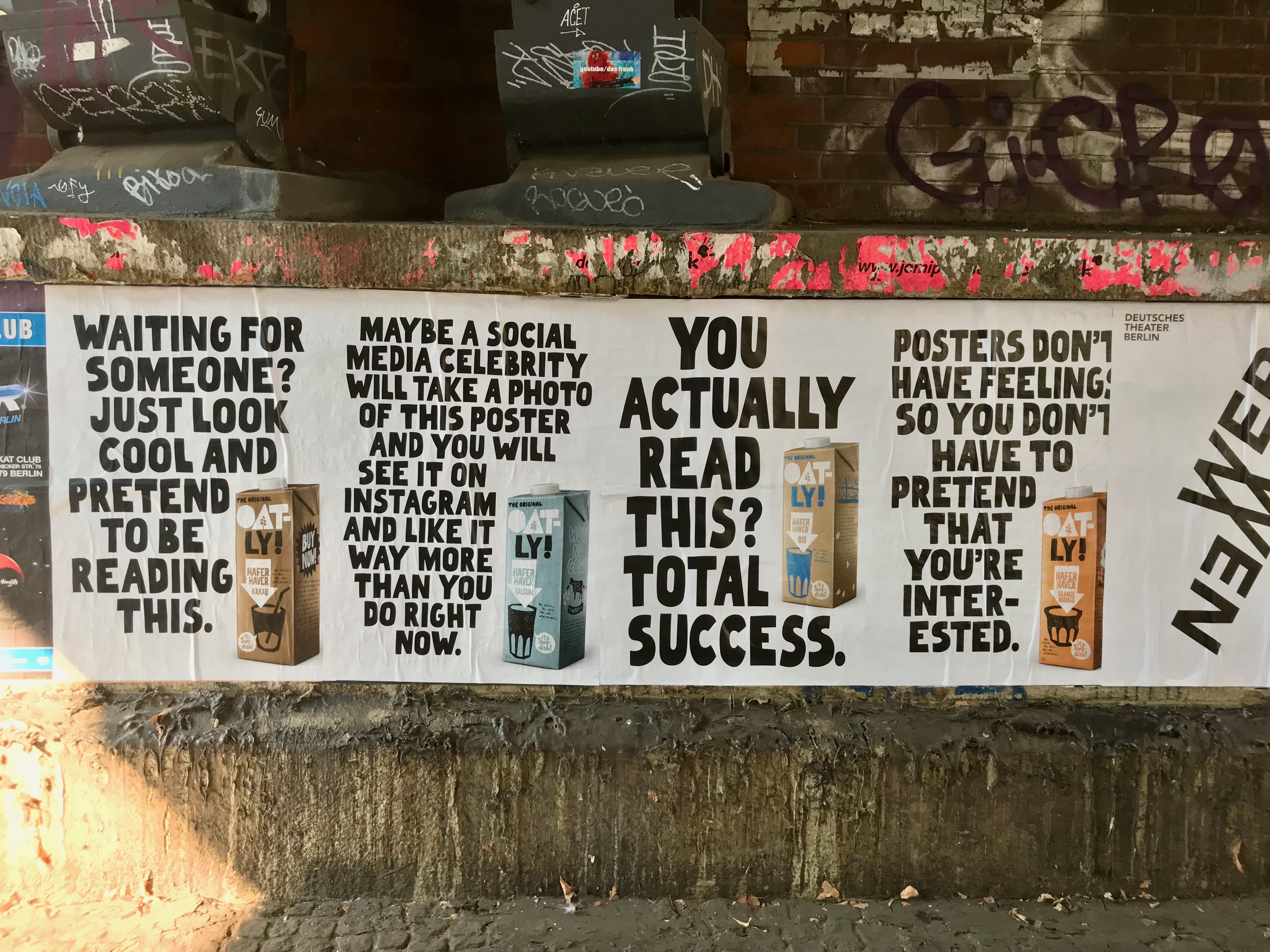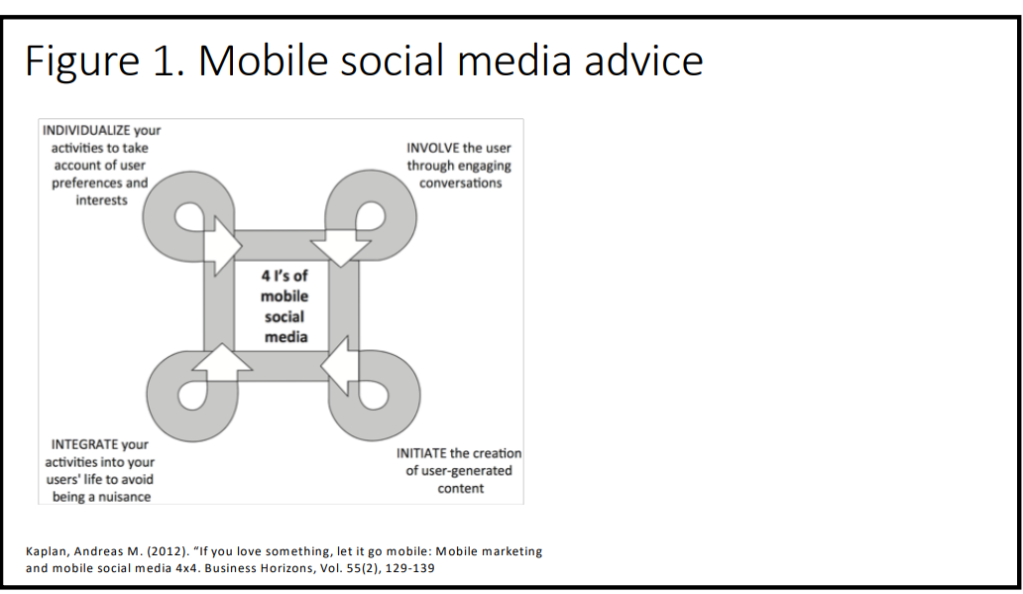How do each brands marketing strategies differ across each platform? Is this an imperative for a successful campaign?

This weeks lecture, highlighted the importance of creating a sound Integrated Marketing Campaign by incorporating not just digital but off-line marketing subsequently.
The key theme was consistency in your messaging but tackling the appropriate platforms desirable to your audience, because really….
It is all about your audience!
Oat-ly have successfully created an IMC which consists of powerful but humerus out-of-home murals placed in different cities.


Oat-ly have encapsulated the humour associated with all things vegan, instagram and influencers which appeals to many consumers. Due to the uniqueness of these advertisements, the message is therefore ingrained in a consumers mind.

They have remained consistent and used different platforms to spread their marketing message direct to consumers.
Oat-ly have created a successful IMC by having a clear understanding of their consumers, their target market and the channels that they use in alignment with their communication methods. The consistency developed throughout their campaign has been maintained across each marketing avenue the brand has implemented. Lastly, Oat-ly have created clear, consistent content used to suit the channels of advertising. For example, their out-of-home signage would not have been as effective, if at all, if the message was shown on a social media page such as Instagram or Facebook. The messages used in this type of advertising were compelling and attention grabbing which appeals to the audience.
IMC is about consolidating different marketing platforms and tailoring a marketing message that will both enhance that message and is consistent throughout. In our digital world, consumers are being exposed to thousands of pieces of information and therefore it is crucial for brands to portray a sense uniqueness, while maintaining a message that appeals to their brands values and their audience.











